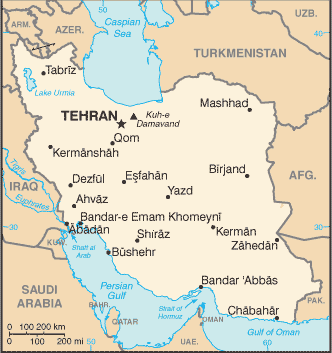 The EU embargo on Iranian oil, pushed stringently by the United States, was delayed for six months to let economically troubled countries such as Greece, Italy and Spain find alternative supplies. Some 500,000 barrels arrive in Europe every day from Iran. But the U.S. had been successful in pressuring EU countries to inflict more economic pain on themselves by cutting off one of their main oil suppliers.
The EU embargo on Iranian oil, pushed stringently by the United States, was delayed for six months to let economically troubled countries such as Greece, Italy and Spain find alternative supplies. Some 500,000 barrels arrive in Europe every day from Iran. But the U.S. had been successful in pressuring EU countries to inflict more economic pain on themselves by cutting off one of their main oil suppliers.
These measures aren’t only harming the EU economies, they are impoverishing the Iranian people. Jobs are being lost because the oil sector is weakened and rampant inflation caused by sanctions targeted on the central bank have pushed the price of meat and milk up 50 percent.
“People are buying less because the prices have gone up,” Iranian-American scholar Haleh Esfandiari said. “That affects the shopkeepers. It’s a vicious cycle.” An Iranian interviewed on the subject said, “People are hungry and this is why crime has gone up.”
The move to cut off exports to the EU before the embargo sets in is an illustration of how poorly the sanctions program on Iran has worked. Instead of pressuring the Iranian government to conform to the wishes of the U.S. and its western allies, it has emboldened the regime.


